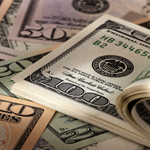The Kabuki Theatre of Demopublicans, Part II
A conversation with Doug Casey
The Gold Report: In the conversation titled On 2013, you say 2013 will be ugly, but merely a warm-up for 2014. Yet the economic trends appear to be positive: the end of quantitative easing by year-end, increased domestic oil and gas production resulting in inexpensive energy for decades to come, more manufacturing jobs, and less unemployment. Is this slow-growing economic recovery masking the effects of the deficit and unfunded liabilities, thus allowing politicians to kick the can further down the road? Why do you think 2013 and 2014 will be so bad?
Doug Casey: In 2007, we started into the leading edge of a financial hurricane. In 2010 through 2012, governments around the world printed trillions of new currency. At some point those dollars, which are currently sequestered, will start coming into circulation. That will result in huge price rises of everything.
You can’t solve problems just by printing pieces of paper. You become prosperous by producing more than you consume and by saving the difference. However, the US, Western Europe, and many other parts of the world consume more than they produce. They have been living on borrowed money and mortgaging our future with debt. That holds true for governments and for individuals.
TGR:That leads me to another conversation in the book, called The Morality of Money. In that conversation, you argue that accumulating wealth is an important social as well as personal good. You say, “The good to the individuals of accumulating wealth is obvious, but the social good often goes unrecognized. Put simply, progress requires capital. Major new undertakings, from hydropower dams to spaceships, require huge amounts of capital. You need the wealth to accumulate in private hands to pay for these things. If the world is going to improve, we need huge pools of capital, intelligently invested.”
You said earlier that the goal of government should be to provide police and to adjudicate disputes. But if world improvement requires huge amounts of capital, who is better placed to make those intelligent investments: self-serving wealthy individuals or self-serving governments?
DC: Let me say something many people will consider shocking: I do not believe government entities should exist at all, or are even necessary. Government is based on force and coercion. Essentially, the power of government comes out of the barrel of a gun, as Mao Zedong noted. I do not think that is the proper way for a civilized society to function. By its nature, government never has and never will be a producer. It is a consumer. It acquires income by theft.
I am an anarchist. Contrary to popular opinion, anarchy has nothing to do with a guy dressed in black holding a little round bomb with a lit fuse. Anarchy is a system of self-rule; you do not have someone telling you what to do and not do.
TGR: But if civilization needs huge amounts of capital to progress, can we expect the wealthy to employ their capital wisely and for the social good?
DC: You cannot expect anybody to do anything, but the fact that the wealthy have a lot of money shows they are good at making money — which is to say, creating and conserving wealth. Governments aren’t noted for production — their history is largely one of wars, persecutions, confiscations, and general repression. And the people who are attracted to government are problematical for that reason.
Most rich people, for example Warren Buffett today and Sam Walton a generation ago, are not interested in consumption. They are more interested in creating more capital. It is better to trust the people who are creating more capital than to trust those in government who do things for political, not economic reasons.
TGR: In the On 2013 conversation, you talk about the bond market, saying, “We are approaching the absolute peak of the bond bubble. Interest rates in the developed economies around the world are two percent, one percent, or even negative. This is fueling a bond bubble of truly catastrophic proportions. When it bursts, it will be an order of magnitude worse than the tech stock-market crash of 2001 or the real-estate crash of 2008.”
DC: This is another reason why I think 2013 and 2014 will be so turbulent. At this point, it appears interest rates are at an all-time low. Bonds are in a bubble. And low rates encourage people to borrow — not save. But saving is absolutely critical — and as much as possible — because it’s proof that an individual or a society is producing more than it’s consuming. When interest rates start going back up, the face value of the bonds will collapse. A lot of individuals and a lot of governments cannot crack their monthly interest nut at low interest rates. How will they cope with high interest rates?
This bond bubble will be much more serious than the stock market bubble, especially because absolutely everyone is buying all kinds of complete junk today that offers a 2% yield. This will be much more serious than the tech-stock or real-estate crashes. The money markets are much bigger.
I pity those who are reaching for yield now. Instead of risk-free return, they’re getting return-free risk.
TGR: Do you see ancillary economies crashing along with the bond market, or do you agree with the notion that rising interest rates will prompt governments to print more money, creating hyperinflation?
DC: A catastrophic deflation is always a possibility — and it’s better than the alternative, a catastrophic inflation. Either way, a depression is inevitable — we’re in it now, actually. I think at this point the authorities will go with creating lots more money.
The government gets revenue three ways. The first is by confiscating the wealth of citizens through taxes. There are hundreds of different taxes, and they all are quite high right now. The second way is by borrowing. Governments are incredibly overindebted and uncreditworthy now, and those debts will never be repaid. The third way is by printing money.
They will continue to print money because number one, it is now the only way out. Number two, the politicians masquerading as economists actually think printing is a good way to stimulate the economy.
TGR: Will that create a bond crash or hyperinflation, or are they one and the same thing?
DC: Perhaps both in sequence. The thing to remember here is that bonds are a triple threat to your capital: interest rate risk, inflation risk, and the risk of default. Anyone who holds old bonds today is holding an asset that is reward-free risk. The risks have never ever been greater in the bond market, and the returns have never been lower. We are at the peak of one of the biggest bubbles in history.
TGR: If we are at the peak, what is the best way to preserve wealth and ride out the next two or three years?
DC: Agriculture and arable land have become quite popular recently. I like them. But I am not crazy about investing in grains and soybeans because they are very political commodities, and the price of agricultural real estate has gone up hugely to reflect higher grain prices. There are no bargains anywhere in the world.
I am a big fan of cattle because cattle herds are at generational lows today. They have been in liquidation because it has been an unprofitable business for years. For most people, however, cattle are not a practical investment.
The most practical thing the average person can do is have a significant position in precious metals. They should own the metal. In years to come, when governments have blown up their currencies, gold and silver will be reinstituted as money.
Regards,
Doug Casey
for The Daily Reckoning
Ever wonder how famous investors and self-made millionaires think — what it is that makes them so successful? Then you should let Doug Casey give you a piece of his mind. His new book, Totally Incorrect, is a showcase of radical libertarian thinking and unwavering free-market advocacy that will open your eyes to a new world view… not to mention investment opportunities flying under Wall Street’s radar. To learn more about this provocative work, click here now.



Comments: